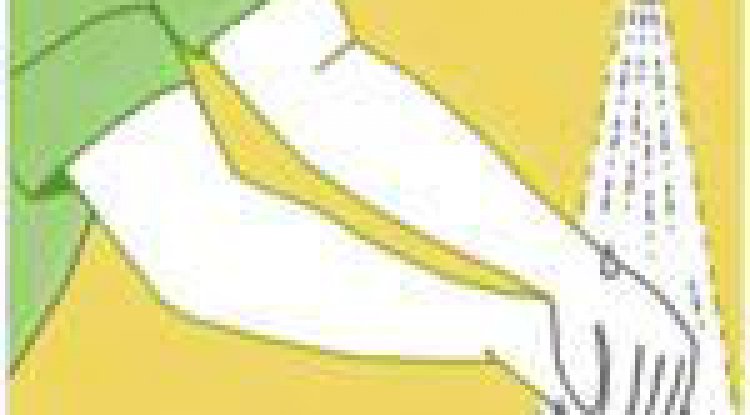whats is zakat (obligatory charity) in Islam
Zakat (obligatory charity) as a pillar of Islam what is it and how its done

-
what is zakah
Zakat or obligatory charity is the fourth pillar of islam, and it's obligatory.
zakat is an acte of worship every muslim with certain condition has to pay it.
Zakah has a deep humanitarian and social-political value. This religious act prevents the hoarding of wealth and advocates solidarity amongst Muslims because excessive wealth is distributed amongst the poor.
also The paying of zakah also helps purify one's soul and encourages a Muslim to have gratitude towards God's bounties.
-
conditions of wealth (money) due to zakat
1 - for the wealth (money) to be due to zakat it must be at firt in the propriety of the person and under his possession. there is no zakat in unknown wealth or lost one.
for exemple, zakat is not valide and obligatory upon money in debt and it's recovery from the debetor is not guaranteed, but if the recovery is guaranteed the the creditor must give zakat upon that debt if a full lunar year has past on it.
2 - the money due to zakat must be in a state of growth, what means it's value grow by time.
3 - a full lunar year must pass on that money on the propriety of his owner, a lunar year is equal to 354 days.
4 - the wealth or money must over pass a certain amount determined by islamic scholars to be due to zakat.
5 - wealth and money such us gold, silver, coins etc if their owner has id debitor to other people, then zakat is not obligatory upon him and he must pay the debt first until his money are clean from debt the he may pay zakat.
-
type of wealth on which zakat is due
Types of Wealth upon which Zakaat Is Due Zakaat is not due on the necessities of life, such as food, drink, clothing, the house one lives in, even if it is a high-priced house, and the car one drives, even if it is a luxurious car. It is only due on types of wealth which are not kept for immediate use and which are bound to increase, such as the following:
- Gold and silver : "note: gold and selver used by women for their personal use is not included by zakat." Zakaat is due on gold and silver only if their value has reached or exceeded an established minimum threshold for this particular kind of wealth (nisaab) and after one has been in possession of this for a complete lunar year (354 days).
as for gold, the minimum on which zakat is obligatory is 85 grams, that means if a person have in his propriety an amount of 85 grams or more of gold, and a whole lunar year (354 days) has passed on that amount of gold on the propriety of that person, then a zakat must be due upon this amount of gold. but if the amount is less that 85 grams (1 - 84 grams), zakat is not obligatory on that gold.
the amout or percentage the a person must give as a zakat on the 85 grams of gold or more is 2.5%.
as an exemple : a muslim person has a 85 grams of gold, and the amout of gold has been in his propriety for over a 355 days or which equal a full lunar year, the he must give zakah upon that amount of gold. and that muslim know the amount of zakat to be given by this calculation: 85grams of gold (mulitiply by ) * 0.025 = 2.125 grams.
that means 2.125 grams of gold must be given in zakah. but the given is the amount of money equal to that 2.125 grams of gold. let's say a gram of gold is worth on the market 50 dollars, the the amount of zakat is 2.125 * 50 dollars = 106.25 dollars the amount of zakat due upon the person in this exemple.
as for silver, the minimum of which zakat is obligatory is 595 grams. and the rest is the same of gold with a percentatge of 2.5% to be given as zakat.
- money and all considered as such like banknotes, coins (etc) held by the person himself or in a bank : The nisaab liable to zakaat on cash, banknotes and coins is to be determined according to its corresponding value of gold (85 grams of pure gold) at the time zakaat falls due, based on the current rates of the country in which the payer of zakaat is resident. If such currency has been held in one's possession for an entire lunar year, two and a half per cent (2.5%) of its value must be given out as zakaat.
as an exemple: if one gram of pure gold at the time zakaat falls due is worth, say 50 dollars, the nisaab of the currency will be as follows : 50 (price of one gram of gold, which is unstable) x85 (number of grams, which is stable)= 4250 dollars, which represente the minimum exemption limit (nisaab).
that 4250 dollars is mulyiply by 0.025 (2.5%) = 106.25 dollars the amount of zakat given.
- Commercial commodities : This term stands for all properties owned with the aim of investing them in trade. They generally include assets, such as real property, and commodities, such as consumer goods and foodstuffs.
The value of commercial assets, which have been held in one's possession for an entire lunar year, must be estimated according to the current market value on the day zakaat falls due. If the commercial commodities reach the nisaab, two and a half per cent (2.5%) of their value must be given out as zakaat.
- agricultural produce : The Qurâan states, O you who believe, give away some of the good things you have earned and some of what We have produced for you from the earth.(Soorat Al-Baqarah, 2:267).
Zakaat is due only on certain types of agricultural produce, the time that zakah must given is not due by lunar year, but in agricultural produce, zakat is due and must given at the time of the harvest of any type of agricultural produce due to zakat.
as an exemple : a muslim persone has a piece of land that produce serials, that person in the summer harvest serials from his land, so by the time harvesting finnished, he must give zakat upon those serials.
the amount of zakaat payable on farm produce varies according to costs spent and effort exerted in irrigation, it's not like agricultural produce irrigated by rain water the agricultural produce irrigated by water neccessite man power etc.
- cattle such as cows, sheep, camels and what considered as such : Zakaat is due on livestock, such as cows, camels and sheep, only if the animals graze on pasture and the owner does not take a lot of trouble to supply them with fodder.
If he supplies them with fodder all or most of the year, zakaat is not due on them.Details as to the minimum amount upon which zakaat is due (nisaab)on livestock is determined by islamic scholars.
-
Recipients of Zakaat
Zakath is spent on eight groups of people, as mentioned in the Qur'an, surah tawbah, ayah 60 :
Innama alssadaqatu lilfuqarai waalmasakeeni waalAAamileena AAalayha waalmuallafati quloobuhum wafee alrriqabi waalgharimeena wafee sabeeli Allahi waibni alssabeeli fareedatan mina Allahi waAllahu AAaleemun hakeemun
۞ إِنَّمَا الصَّدَقَاتُ لِلْفُقَرَاءِ وَالْمَسَاكِينِ وَالْعَامِلِينَ عَلَيْهَا وَالْمُؤَلَّفَةِ قُلُوبُهُمْ وَفِي الرِّقَابِ وَالْغَارِمِينَ وَفِي سَبِيلِ اللَّهِ وَابْنِ السَّبِيلِ ۖ فَرِيضَةً مِّنَ اللَّهِ ۗ وَاللَّهُ عَلِيمٌ حَكِيمٌ
Zakah expenditures are only for the poor and for the needy and for those employed to collect [zakah] and for bringing hearts together [for Islam] and for freeing captives [or slaves] and for those in debt and for the cause of Allah and for the [stranded] traveler - an obligation [imposed] by Allah. And Allah is Knowing and Wise.
- Poor people : who have few belongings
- Destitute people : who have absolutely nothing
- Zakat collectors : for their work in collecting and distributing the zakat
- Muslim Reverts : who may be estranged from their families and in need of help
- Slaves : to free them from slavery in times/places where slavery has existed
- Debtors : to help free them from insurmountable debts
- Those working in the path of Allah
- Wayfarers : who are stranded during their travels
and may allah accept and forgive all of us muslims
What's Your Reaction?





















